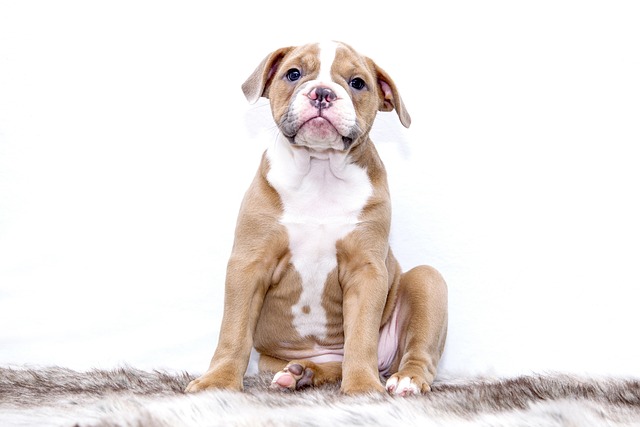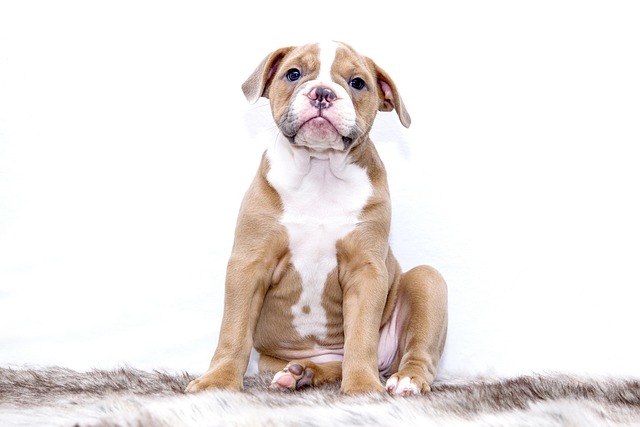
What is best for dogs' irritated skin
When we find that the dog's originally smooth and healthy skin shows symptoms of being irritated, such as redness, itching, and flaking,
When you find that your usually lively and cute dog frequently shakes his head, scratches his ears with his paws, or even has redness, swelling, and odor in his ears, you will feel worried and distressed. Dogs cannot speak, so they can only use such behavior to convey the signal of "I am uncomfortable". As owners, we are eager to know what to give them to get rid of the trouble of itchy ears.
Dog ear itching is not caused by a single reason. Understanding the "real culprit" behind it is the key to solving the problem. Ear canal infection is one of the common causes. Bacteria, fungi or parasites multiply in the warm and humid ear canal of dogs, causing inflammation. Among them, ear mite infection is particularly common. These tiny parasites that are almost invisible to the naked eye will multiply rapidly in the ear canal. Their excrement irritates the skin of the ear canal, causing the dog to itch unbearably. In addition, allergies are also an important factor causing dog ear itching. Food allergies and environmental allergies may cause the dog's immune system to "misjudge" and attack normal substances as enemies, which is manifested in itching and redness in the ears. Contact with certain irritants, such as inferior ear wash, pollen, dust mites, etc., can also induce allergic reactions. Another situation that cannot be ignored is the dog's own skin problems, such as seborrheic dermatitis, which can cause abnormal oil secretion in the ear skin and cause itching.
Facing the itching of the dog's ears, we must first make it clear that we cannot blindly use medicine on our own. Before giving any treatment, it is crucial to take the dog to the pet hospital for a comprehensive examination. Professional veterinarians will accurately determine the cause of ear itching through ear canal secretion examinations, skin scrapings, etc. Only after diagnosis can a targeted treatment plan be formulated.
 If it is an ear mite infection, the veterinarian will usually prescribe special mite removal ear drops. This type of ear drops can effectively kill ear mites and their eggs and relieve the dog's itching symptoms. When using ear drops, we must be patient and gentle. First, gently turn over the dog's ears, dip a cotton ball in an appropriate amount of ear wash, carefully wipe the external ear canal, remove earwax and secretions, and be gentle during this process to avoid damaging the dog's ear canal. Then drop the ear drops into the ear canal according to the veterinarian's instructions, and gently rub the ear base to allow the liquid to be fully distributed in the ear canal to help the drug work better. Generally, it needs to be used continuously for several weeks and checked regularly to ensure that the ear mites are completely removed.
If it is an ear mite infection, the veterinarian will usually prescribe special mite removal ear drops. This type of ear drops can effectively kill ear mites and their eggs and relieve the dog's itching symptoms. When using ear drops, we must be patient and gentle. First, gently turn over the dog's ears, dip a cotton ball in an appropriate amount of ear wash, carefully wipe the external ear canal, remove earwax and secretions, and be gentle during this process to avoid damaging the dog's ear canal. Then drop the ear drops into the ear canal according to the veterinarian's instructions, and gently rub the ear base to allow the liquid to be fully distributed in the ear canal to help the drug work better. Generally, it needs to be used continuously for several weeks and checked regularly to ensure that the ear mites are completely removed.
For ear itching caused by bacterial or fungal infections, the veterinarian will choose the appropriate antibiotic or antifungal drug according to the type and severity of the infection. These drugs may be given in the form of ear drops, ointments or oral medications. Oral medications can inhibit the growth of pathogens from the body, while ear drops and ointments can act directly on the infected site, taking a two-pronged approach to achieve better treatment effects. During the medication process, it is very important to strictly control the dosage and medication time according to the veterinarian's instructions. Even if the dog's symptoms are relieved, the drug cannot be stopped without authorization, otherwise the condition is likely to recur and the dog will suffer from itching again.
Ear itching caused by allergies is relatively complicated to treat, and it is necessary to find and stay away from allergens. If it is a food allergy, the veterinarian may recommend a food elimination test to eliminate the food ingredients that may cause allergies one by one by changing the low-allergy prescription food. During this process, we need to carefully observe the dog's dietary response and record every detail. Environmental allergies require us to create a clean and comfortable living environment for the dog as much as possible. Clean the dog's bed mat and toys regularly, use an air purifier to reduce allergens in the air, and avoid taking the dog to places with more pollen and dust mites. At the same time, the veterinarian may prescribe anti-allergic drugs, such as antihistamines, to help relieve the dog's allergic symptoms and relieve itching.
In addition to drug treatment, daily ear care also plays an important role in preventing and relieving dog ear itching. Choosing a mild and professional ear wash to clean the dog's ears regularly can keep the ear canal clean and hygienic, and reduce the growth of dirt and bacteria. The frequency of cleaning can be determined according to the dog's breed, living environment and ear condition, generally 1-2 times a month. During the cleaning process, we can interact with the dog gently, soothe its emotions, and let it gradually adapt to the process of ear care. In addition, keeping the dog's living environment clean and dry, deworming regularly, and enhancing the dog's immunity can all help prevent the occurrence of ear diseases. Providing dogs with balanced nutrition, proper vitamin and mineral supplementation, and keeping them healthy are also important "weapons" against ear itching.
When we see that dogs are no longer irritated by ear itching and regain their former liveliness and cuteness, all the efforts become worthwhile. Dogs are our best friends in life. They give us unconditional love and companionship, and we should also use professional knowledge and warm care to dispel their pain and protect their health and happiness when they need it.

When we find that the dog's originally smooth and healthy skin shows symptoms of being irritated, such as redness, itching, and flaking,

When we see our dog, which used to have smooth fur and be lively and active, constantly scratching due to dry and itchy skin,

When you find that your usually lively and cute dog frequently shakes his head, scratches his ears with his paws, or even has redness, swelling, and odor in his ears, you will feel worried and distressed.

When the cold wind brings ice and snow to the window lattice, humans can resist the severe cold by adding clothes and keeping warm. Dogs, who cannot speak, can only convey their perception of the cold through subtle changes in their bodies.

Dogs chew toys, which may seem naughty, actually contain their unique physiological and psychological needs. Every chewing is their way of interacting with the world and a special "language" to convey information to their owners.

In the silent late night, it should be the time for sound sleep. However, when we find that the dog, which usually falls asleep as soon as it lies down,